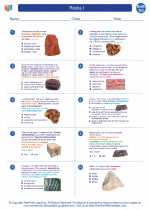What is Alumina?
Alumina, also known as aluminum oxide, is a chemical compound that is abundantly present in the Earth's crust. It is a white crystalline powder and is the primary source of aluminum. Alumina is commonly found in the form of minerals such as corundum and bauxite.
Properties of Alumina
Alumina has several important properties, including high melting point, hardness, and resistance to chemical corrosion. It is an excellent electrical insulator and is also used as a catalyst in various chemical processes.
Uses of Alumina
Alumina has diverse industrial applications. It is used in the production of aluminum metal through the Bayer process, which involves extracting alumina from bauxite ore. Additionally, alumina is utilized in the manufacturing of ceramics, abrasives, and refractory materials due to its high heat resistance and durability.
Environmental and Health Considerations
While alumina itself is relatively inert and non-toxic, the extraction and processing of bauxite into alumina can have environmental impacts, particularly with respect to habitat destruction and the generation of waste products. Additionally, exposure to high levels of airborne alumina dust may pose respiratory health risks.
Conclusion
Alumina is a versatile compound with a wide range of industrial applications. Its properties make it indispensable in the production of aluminum and various other materials. Understanding the environmental and health considerations associated with its extraction and use is important for sustainable and responsible practices.
.◂Earth Science Worksheets and Study Guides High School. Rocks I

 Worksheet/Answer key
Worksheet/Answer key
 Worksheet/Answer key
Worksheet/Answer key
 Vocabulary/Answer key
Vocabulary/Answer key
 Vocabulary/Answer key
Vocabulary/Answer key
 Vocabulary/Answer key
Vocabulary/Answer key
